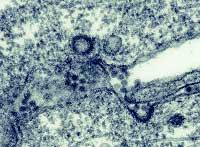Tropical virus is more harmful to Americans
West Nile virus is a flabobvirus that belongs to the same family of viruses that produce dengue, yellow fever, Japanese encephalitis and St. Louis encephalitis first appearing in New York in 1999. Since then it has spread across Canada and the United States in the east and west, and this same year 42 older people have been ill and two have died in the United States.

Although the disease is endemic in several countries in Africa and Asia, more research has been carried out since its enlargement across the Atlantic. One of them, led by Robert Tesh of the University of Texas, was presented on November 14 at the 50th annual meeting of the Tropical Society of Health and Hygiene. Apparently, there is a risk that the virus will spread to South and Central America and the aim of the research was to foresee expansion. According to this, the virus would not cause the same problem that was initially thought in tropical America.
In this study it was discovered that the hamsters that had suffered various flabobuls were contaminated by the West Nile virus and were resistant to the disease. The hamsters that were not related to the viruses of this family, however, ten days after the disease, half died. Therefore, it seems that contact with other flabobirus generates protection against the West Nile virus. Thus, while getting a vaccine for this virus, existing vaccines (for example, vaccination against Japanese encephalitis) can provide some protection. However, the specific vaccine of the West Nile virus in animals is already being tested.
More information:
Generalized virus virus
Buletina
Bidali zure helbide elektronikoa eta jaso asteroko buletina zure sarrera-ontzian











